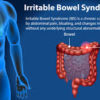Ayurvedic Tips for Managing Symptoms of Post-Traumatic Stress Disorder (PTSD)
Ayurvedic Tips for Managing Symptoms of Post-Traumatic Stress Disorder (PTSD) is a profound and challenging condition that affects many individuals who have experienced or witnessed traumatic events. It manifests through a range of symptoms, including flashbacks, nightmares, severe anxiety, and mood swings. While traditional treatments such as psychotherapy and medication are crucial, integrating Ayurvedic practices can offer a complementary approach to managing PTSD. Ayurveda, an ancient system of medicine from India, focuses on balancing the body, mind, and spirit to achieve overall wellness. This blog explores Ayurvedic tips and practices that can help manage the symptoms of PTSD, promoting a holistic path to healing.
Understanding PTSD in Ayurvedic Terms
In Ayurveda, mental health conditions are often associated with imbalances in the doshas—Vata, Pitta, and Kapha. PTSD can disrupt these doshas, but particularly Vata, which is responsible for movement and nervous system functions. An aggravated Vata dosha can lead to symptoms like anxiety, restlessness, and insomnia, which are commonly seen in PTSD.
Ayurvedic Approaches to Managing PTSD

- Balancing Vata DoshaDiet: To balance Vata, focus on consuming grounding and nourishing foods. Favor warm, cooked meals such as soups, stews, and whole grains. Incorporate sweet, sour, and salty flavors, which can help stabilize Vata. Foods like sweet potatoes, avocados, and cooked apples are excellent choices. Avoid excessive raw foods, cold beverages, and stimulants like caffeine, which can aggravate Vata.Routine: Establishing a regular daily routine can help create stability and predictability, which is essential for calming Vata. Consistent meal times, sleep schedules, and self-care practices contribute to a sense of grounding and security.Self-Care Practices: Gentle yoga, meditation, and pranayama (breathing exercises) are beneficial for calming Vata. Incorporate practices like Savasana (Corpse Pose) or gentle restorative yoga poses to help soothe the nervous system. Pranayama techniques such as Anulom Vilom (Alternate Nostril Breathing) can also help balance Vata.
- Incorporating Stress-Relief TechniquesMeditation and Mindfulness: Regular meditation can help manage PTSD symptoms by calming the mind and reducing stress. Practices such as guided meditation, deep breathing, and mindfulness can aid in processing trauma and enhancing emotional stability.Abhyanga (Oil Massage): Self-massage with warm, calming oils like sesame or almond oil can help ground the body and soothe the nervous system. Abhyanga not only promotes relaxation but also improves circulation and helps to release physical and emotional tension.Aromatherapy: Essential oils such as lavender, sandalwood, and chamomile have calming properties that can help reduce anxiety and promote relaxation. Use these oils in a diffuser, add them to a warm bath, or apply them diluted with carrier oils for a calming effect.
- Supporting Mental Clarity and Emotional Well-BeingCooling Foods and Herbs: Balancing Pitta dosha, which governs transformation and metabolism, is essential for managing emotional well-being. Include cooling foods such as cucumber, cilantro, and mint in your diet. These herbs help improve mental clarity, reduce anxiety, and support emotional stability. Staying well-hydrated with cooling beverages like coconut water, herbal teas (e.g., chamomile, peppermint), and fresh juices is vital. Proper hydration supports overall well-being and helps maintain balance.
- Nurturing Kapha DoshaStimulating Activities: To balance Kapha dosha, which is related to structure and stability, engage in activities that uplift and energize you. Regular exercise, such as brisk walking or yoga, can help counteract feelings of lethargy and boost mood.Light and Energizing Foods: Incorporate light and energizing foods into your diet, such as fresh fruits, leafy greens, and legumes. Avoid heavy, greasy foods that can contribute to sluggishness and emotional heaviness.
- Creating a Supportive EnvironmentClean and Organized Space: Maintaining a clean and organized living space can create a sense of calm and order. Clutter and chaos can exacerbate stress and anxiety, so keeping your environment tidy can help foster a sense of tranquility.Natural Elements: Incorporate natural elements like plants, natural light, and soothing colors into your living space. These elements contribute to a calming and nurturing environment that supports mental and emotional well-being.
Ayurvedic Herbs for PTSD Management
Several Ayurvedic herbs can support mental health and help manage PTSD symptoms:
- Brahmi (Bacopa monnieri): Brahmi is renowned for its cognitive-enhancing and calming properties. It helps improve memory, reduce anxiety, and support overall mental clarity.
- Ashwagandha (Withania somnifera): Ashwagandha is an adaptogen that helps the body manage stress and promotes emotional resilience. It also aids in reducing anxiety and improving sleep.
- Jatamansi (Nardostachys jatamansi): Jatamansi is used in Ayurveda to calm the mind, improve sleep quality, and support emotional balance. It is particularly useful for managing stress and anxiety.
- Tulsi (Holy Basil): Tulsi is known for its adaptogenic properties that help the body adapt to stress and support emotional stability. It also has a soothing effect on the nervous system.
Integrating Ayurveda with Conventional Treatments
While Ayurvedic practices can offer significant benefits, they should complement, not replace, conventional treatments for PTSD. It’s important to work with a healthcare provider to create a comprehensive treatment plan that integrates both conventional and complementary approaches. Ayurvedic practices should be used as part of a holistic approach to mental health, alongside psychotherapy and medication if prescribed.
Practical Tips for Implementing Ayurvedic Practices
- Start Gradually: Introduce Ayurvedic practices slowly into your routine. Begin with one or two practices, such as daily meditation or dietary changes, and observe how they affect your well-being.
- Listen to Your Body: Ayurveda emphasizes individualized care. Pay attention to how your body responds to different practices and adjust as needed. Personalization is key to finding what works best for you.
- Seek Professional Guidance: Consult with an Ayurvedic practitioner or a healthcare professional knowledgeable about integrative approaches to ensure that the practices are suitable for your specific needs and conditions.
Conclusion
Ayurvedic Tips for Managing Symptoms of Post-Traumatic Stress Disorder (PTSD) requires a multifaceted approach that addresses the physical, emotional, and mental aspects of the condition. Ayurveda offers valuable tools and practices that can support traditional treatments by promoting balance, relaxation, and overall well-being. By integrating Ayurvedic principles into your daily routine, you can enhance your ability to cope with PTSD symptoms and foster a greater sense of harmony and resilience. Always approach any new treatment or practice with care and seek professional guidance to ensure it complements your overall treatment plan. Ayurvedic Tips for Managing Symptoms of Post-Traumatic Stress Disorder (PTSD) With a balanced approach, combining conventional and complementary methods, you can work towards a more comprehensive and holistic healing journey.








Leave a reply